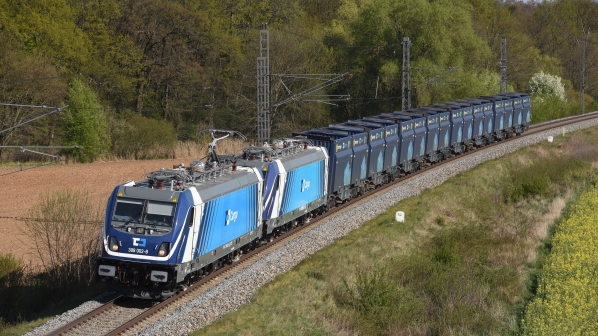The passenger division remained profitable, and retains 90% of the Czech market, despite a difficult year due to “ongoing liberalisation of the rail transport market.”
The operator carried 182 million passengers, with average journey distance and train occupancy both increasing by about 10%.
This was tempered at the end of 2019, and to a lesser extent at the end of 2018, as ČD lost regional transport concessions to competing private undertakings as Arriva Vlaky, Leo Express and Regiojet all took over services in several regions in the Czech Republic.
ČD board member for economics, Mr Patrik Horný, says higher revenue was balanced by rising costs, including energy and staff costs, which increased by around Koruna 100m.
ČD Cargo recorded a profit of Koruna 608m, transporting 65 million tonnes of freight. ČD Cargo is expanding its international activities, and says potential losses in the domestic freight market were compensated by its international performance. Annual profit decreased slightly due to energy and labour costs, higher depreciation and higher costs relating to investment financing.
Coronavirus clouds future
ČD says its future development, including the level of investment in its fleet, will depend on how it deals with the ongoing coronavirus pandemic.
Last year the operator invested Koruna 8.7bn in its fleet, including purchasing new double-deck push-pull trains and updating existing coaches. ČD Cargo also purchased three Bombardier Traxx multi voltage MS3 intermodal locomotives, five class 753.6 Bizon diesel locomotives and new freight wagons including flat wagons, large capacity tank wagons and high-volume covered wagons.
“The anti Covid-19 pandemic measures are having a negative impact on services and are causing losses of billions of Koruna,” says CEO ČD, Mr Vacláv Nebeský. “However, we do our best to avoid decreasing the number of staff and to avoid the effects on our fleet modernisation programme.”
ČD is still planning to introduce new coaches manufactured jointly by Siemens and Škoda for long-distance and international services. A further 31 EMUs are in production, along with double-deck push-pull coaches for operation on the non-electrified lines in the Ostrava area.

